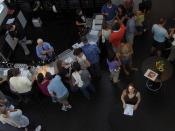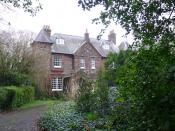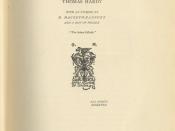In Jude the Obscure, Thomas Hardy presents two characters whose dreams and ambitions ultimately end in failure and tragedy. It can be argued that this is due to oppressive social forces; Jude is unable to fulfil his dreams due to his class, and Sue due to her gender. However, there are many other factors, both personal and social, that contribute to their downfall.
Throughout the course of his life, Jude's great aspiration is to be a scholar. He dreams of following in the footsteps of his teacher Mr. Phillotson and attend the university in Christminister, which is supposed to represent the real-life university of Oxford. However Jude's ambition is an idealistic vision for one of his social class. It makes him increasingly an outsider to the life of the rural community. He is does not choose the life he would have been expected to, and consequently he is seen as having ideas above his station.
Arabella Donn friend, Anny, reflects the attitude of Jude's social equals when she remarks that Jude has been "very stuck up, and always reading." (p.82) At the end of the nineteenth century, the universities of Oxford and Cambridge remained protectors of social privilege, serving the interests of the nations ruling elite. However Jude admits that if he had continued to work at Christminister for another fifteen years, he could have earned enough money to buy himself into a college. His learned aspirations, although very difficult for someone of his social standing to achieve, were therefore not impossible. This shows that other factors must also have been important in his failure.
Jude is constantly held back by a puerile naivety that manifests itself as a moral idealism. He is described as a "simple child" (p.42) and is said to feel "a childlike yearning...


